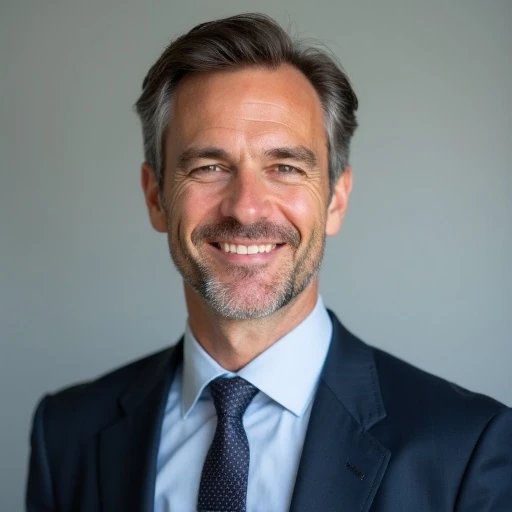Nevada State University has closed its Office of Community, Equity, Diversity, and Inclusion (CEDI), a move that current and former faculty members, along with students, describe as part of a broader dismantling of support programs for minority and first-generation students. The university administration states the closure is part of a structural reorganization, but critics allege it is a response to national political pressure against diversity initiatives and has led to retaliation against those who voiced opposition.
Key Takeaways
- Nevada State University officially closed its diversity office on May 1 as part of a campus-wide reorganization that began in 2022.
- Former staff and students claim other key programs, like Nepantla for first-generation students, are also being eliminated or scaled back.
- Critics link the university's actions to a national trend of scaling back DEI programs under pressure from the Trump administration.
- Faculty members who opposed the changes have reportedly faced retaliation, including being moved to unsuitable positions.
- The university has established a new Student Transition and Retention Office, stating it will serve all students' needs.
University Restructures Amid National DEI Scrutiny
Nevada State University (NSU) has implemented significant changes to its student support structure, resulting in the closure of its central diversity office. According to a university spokeswoman, Maria Marinch-Gibbons, the decision to close the CEDI office was part of a larger reorganization plan initiated in 2022.
Marinch-Gibbons explained that the goal was to "ensure the institution is prepared for future growth while maintaining flexibility to adapt to the changing needs of students, faculty, and staff." As part of this shift, the university created a new Student Transition and Retention Office, which is intended to expand services like peer mentoring to the entire student body.
A Nationwide Trend
According to data from the Chronicle for Higher Education, Nevada State is one of 403 college campuses across 47 states and the District of Columbia that have closed or restructured their diversity offices this year. This reflects a growing national movement against DEI initiatives in higher education.
However, this official explanation has been met with skepticism from those directly involved with the now-defunct programs. They see the university's actions as a reaction to a broader political climate critical of diversity, equity, and inclusion efforts, particularly those influenced by the second Trump administration's policies.
Allegations of Retaliation and Silencing Dissent
Former employees and current faculty report a climate of fear and retaliation for those who spoke out against the changes. Marcela Rodriguez-Campo, the former director of the CEDI office, resigned in August, citing the "discontinuation and erasure" of her department and other diversity programs as her reason for leaving.
"There are folks who had been building at the institution for a decade, who have now been blacklisted, been forced to sign non-disparagement agreements and have essentially had their voices taken from them for advocating for the continuation of these programs," Rodriguez-Campo stated.
The university declined to answer specific questions about how many employees were transferred or asked to sign prohibitive agreements, citing "personnel matters." However, a spokesperson confirmed that "standard employment contracts do not include a non-disclosure agreement."
Rodriguez-Campo described one instance where a staff member who resisted the changes was allegedly moved from a private office to a cubicle, placed under intense supervision, and barred from speaking directly with students. "The surveillance she was experiencing was really intense," she added.
Impact on Student Support Programs
Beyond the closure of the main CEDI office, other critical support systems for students are reportedly being eliminated or significantly reduced. One of the most prominent examples is the Nepantla program, which was designed to help first-generation college students navigate university life.
An email sent in March by the former Nepantla Director, Leilani Carreno, informed alumni and community members that the program would be "discontinued." The email acknowledged the community built by the program, where students found "support, guidance, belonging."
The Role of First-Generation Support
Programs like Nepantla are considered vital for student retention. First-generation students often lack the familial experience with higher education, making mentorship and targeted support crucial for their academic success and graduation.
Students who benefited from these programs have voiced their concerns directly to university leadership. At a Nevada System of Higher Education meeting in March, Leonardo Montoya, a former Nepantla participant, argued that such programs are "essential to retention and graduation."
"College students who receive a targeted mentorship and academic support are more likely to persist, graduate and contribute meaningfully to the workforce," Montoya told the regents. "Dismantling these programs would disproportionately affect students who already face systemic barriers to degree attainment."
Anonymous students told reporters they felt "gaslit" by the administration, which they claim assured them that the intent of the programs would be preserved without providing any concrete details on how.
A Shift in Institutional Tone and Mission
Faculty members have observed a distinct change in how Nevada State University communicates its values. Molly Appel, a professor at NSU and a member of the Nevada Faculty Alliance, noted a shift from being "unapologetic about embracing and celebrating students’ diverse, racial,cultural and ethnic identities to tiptoeing around it.”
Appel acknowledged the difficult position administrators are in, facing a "shifting ground constantly." However, she also pointed to the real-world consequences of their decisions.
"What we’re seeing is higher education being more focused on maintaining its existence than focusing on its reason for existence," Appel said, describing a trend not unique to Nevada. She added that some faculty have left the university because they felt the "institution no longer aligned with their values."
Broader Political Context
The changes at NSU are occurring as the U.S. Department of Education launches investigations into diversity-related programs at universities nationwide. The Trump administration has also moved to withhold $350 million in congressionally approved funding for minority-serving institutions, diverting the money elsewhere.
This political pressure has created a chilling effect on campuses. For students at NSU, many of whom are first-generation or from immigrant families, the removal of dedicated support systems comes at a particularly vulnerable time.
"They need these supports more than ever," Appel commented. "They need a sense of affirmation. In some ways, they see their institutions tiptoeing around it and hiding."
The university’s official social media for the CEDI office posted a final message in August, announcing it would become inactive. According to Rodriguez-Campo, this was the culmination of a process that began in the fall of the previous year, when discussions about the future of diversity programs ultimately led to their defunding and dismantling, rather than the collaborative reform staff had hoped for.





